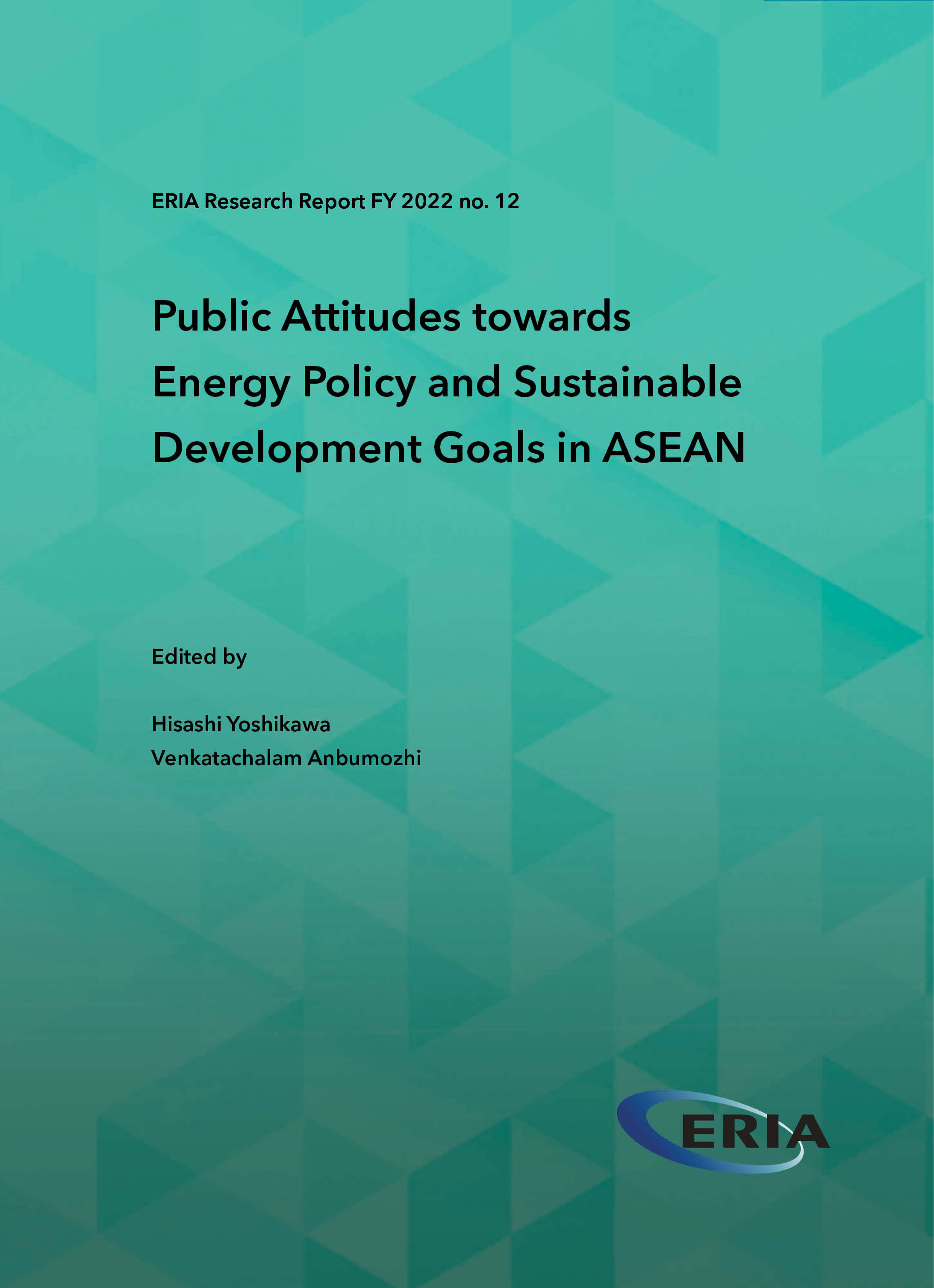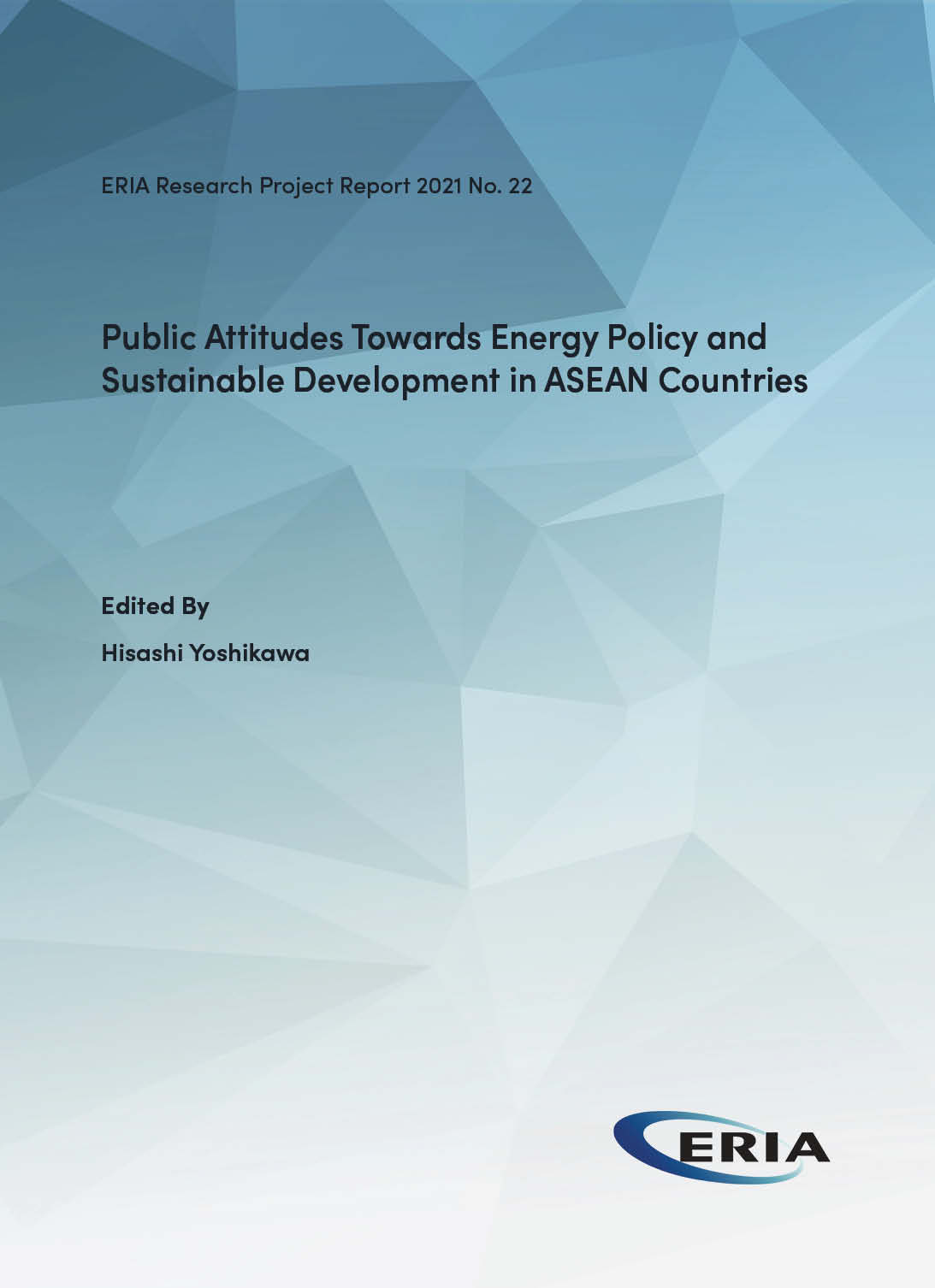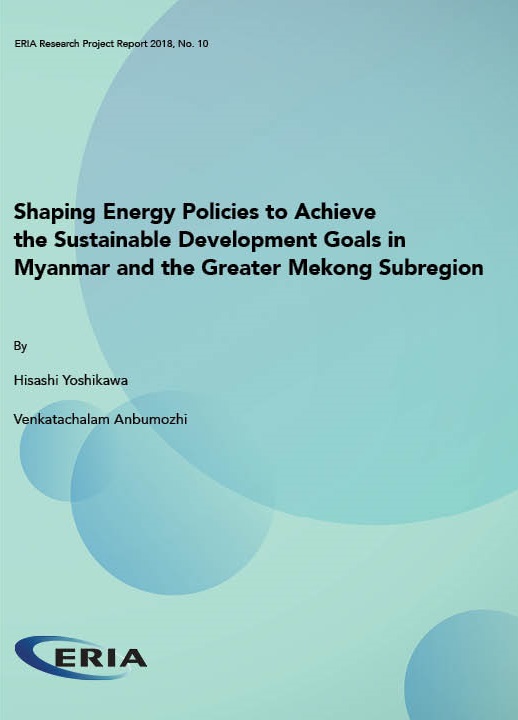Public Attitudes Towards Energy Policy and Sustainable Development Goals in ASEAN

Date:
26 October 2022Type:
Research Project ReportsTags:
Sustainable Development Goals, RenewableEnergy, Malaysia, IndonesiaPrint Article:
Association of Southeast Asian Nations (ASEAN) Member States (AMS) have taken on ambitious policy goals in relation to Sustainable Development Goals (SDGs). But, like many other countries, they have also been severely affected by COVID-19 and high energy prices. A rapid rise in clean electricity will be one of the keys to achieving SDG 7 but is challenging from the perspective of willingness to pay (WTP). This report summarises the results of Stakeholder surveys on WTP conducted in Myanmar, Lao PDR, Malaysia, the Philippines, Thailand, Viet Nam, and Indonesia. Eighty-five percent of respondents in the countries indicate that they are willing to pay at least 7%–10% more than normal energy prices. The econometric analysis indicates that income, education, age, and gender, as well as public awareness and concerns about climate change, are significant factors influencing WTP. Respondents who are more knowledgeable and more concerned about the adverse effect of climate change show higher WTP. Policies toward SDGs and public reflections are scant in AMS and this study contributes to a better understanding of the public perspective on energy and climate change policymaking in ASEAN.
Full Report
Public Attitudes Towards Energy Policy and Sustainable Development Goals in ASEAN
Contents
List of Abbreviations and Acronyms
Chapter 2 Review of Energy Policies in Surveyed Countries
Chapter 3 Methodology: Survey Design
Chapter 7 Attitude Survey on CDR in Malaysia
Chapter 8 Seven-Country Comparison




